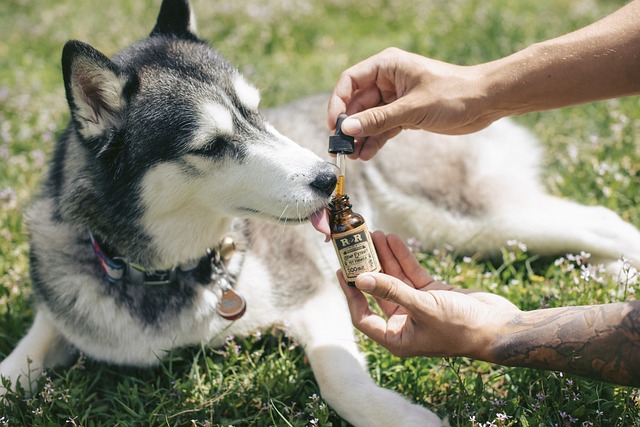In the rapidly growing CBD market, heavy metals testing is paramount for consumer safety and brand integrity. Global regulatory bodies mandate advanced instrumental methods to detect lead, mercury, and arsenic in various CBD products, ensuring purity and compliance with legal standards. Rigorous testing, utilizing sophisticated techniques like ICP-MS, fosters consumer trust and separates reputable brands from the competition. Keeping up with evolving regulations, including harmonized standards and transparency, is crucial for businesses aiming to stay ahead in the dynamic CBD industry.
In the burgeoning market for cannabidiol (CBD) products, ensuring compliance with stringent regulations is paramount. This comprehensive guide delves into the critical aspects of maintaining product safety standards, focusing on the essential role of heavy metals testing in CBD quality assurance. From understanding regulatory requirements to navigating manufacturing challenges, we explore best practices and emerging trends shaping the future of CBD compliance, emphasizing the importance of heavy metals testing as a cornerstone for consumer protection.
Understanding Compliance Requirements for CBD Products

In the rapidly expanding world of cannabidiol (CBD) products, understanding compliance requirements is paramount to ensuring product safety and legal integrity. One critical aspect that manufacturers must navigate is heavy metals testing for CBD. This process involves meticulous analysis to guarantee that CBD oils, capsules, edibles, and topicals are free from harmful contaminants, including heavy metals like lead, mercury, and arsenic. Such impurities can pose significant health risks, underscoring the importance of rigorous quality control measures.
Compliance requirements vary across jurisdictions, but heavy metals testing is increasingly becoming a standard protocol for CBD product certifications. Manufacturers must adhere to these guidelines to meet consumer safety standards and regulatory expectations. By implementing robust testing procedures, including advanced instrumental methods, companies can ensure their products not only comply with legal limits but also surpass industry benchmarks for purity and quality.
The Role of Heavy Metals Testing in CBD Quality Assurance

In the realm of CBD (Cannabidiol) production and quality assurance, heavy metals testing stands as a pivotal process, ensuring product safety and purity. This meticulous analysis plays a crucial role in safeguarding consumers by identifying and mitigating any trace elements of heavy metals, which can be harmful. With the growing popularity of CBD products, ranging from oils to supplements and edibles, it’s essential to implement rigorous quality control measures. Heavy metals testing is a game-changer in this regard, acting as a filter against potential contaminants that may find their way into the final product.
The process involves sophisticated analytical techniques to detect even minute quantities of heavy metals like lead, mercury, and cadmium. These contaminants can enter the CBD production chain through various sources, including raw materials, extraction processes, or environmental factors. By incorporating heavy metals testing as a standard procedure, manufacturers can ensure that their products meet the stringent safety standards set by regulatory bodies. This, in turn, fosters consumer trust and confidence in the overall CBD market.
Why Heavy Metal Contaminants Are a Concern in CBD

Heavy metal contaminants in CBD products have become a significant concern due to their potential health risks. Although CBD itself is generally considered safe, trace amounts of heavy metals like lead, mercury, and arsenic can be present as unwanted byproducts during the cultivation or extraction processes. These metals are often picked up from contaminated soil, water sources, or even industrial activities in the vicinity of CBD farms. Given that CBD products are increasingly consumed orally, inhaling, or applying them to the skin, ensuring their purity is paramount.
The importance of Heavy Metals Testing for CBD cannot be overstated as it guarantees product safety and maintains consumer trust. Regular testing procedures help identify and mitigate heavy metal contaminants at early stages, ensuring compliance with regulatory standards. Moreover, transparent reporting of these tests allows consumers to make informed decisions about the products they use, fostering a trustworthy market environment for CBD and related products.
Regulatory Standards and Limits for Heavy Metal Presence

In the realm of CBD (Cannabis) products, ensuring compliance with regulatory standards is paramount, especially when it comes to heavy metal presence. Heavy metals testing for CBD is a critical aspect that cannot be overlooked, as these contaminants can pose significant health risks. Regulatory bodies worldwide have set strict limits on the acceptable levels of heavy metals in various substances, including dietary supplements and cannabis-derived products. For instance, the US Food and Drug Administration (FDA) has established guidelines that define safe levels for lead, mercury, and other hazardous metals in food and dietary supplements.
When it comes to CBD oils, extracts, or infusions, manufacturers must employ robust quality control measures to guarantee the absence of heavy metals. This involves utilizing advanced analytical techniques such as Inductively Coupled Plasma Mass Spectrometry (ICP-MS) to detect and quantify any trace amounts of heavy metals. By adhering to these stringent standards, CBD product developers ensure the safety and purity of their offerings, fostering consumer trust in an increasingly regulated market.
Implementing Effective Quality Control Measures for CBD Production

In the realm of CBD production, ensuring product quality and safety is paramount. One of the critical aspects of this process is implementing robust Quality Control (QC) measures that cater to various factors, including heavy metals testing for CBD. This essential step guarantees that the final product meets stringent regulatory standards and is free from any harmful contaminants. By integrating advanced analytical techniques, such as Inductively Coupled Plasma Mass Spectrometry (ICP-MS), manufacturers can accurately detect trace amounts of heavy metals, ensuring a pure and safe CBD extract.
Effective QC protocols for CBD production encompass comprehensive testing at every production stage. This includes regular sampling and testing of raw materials, intermediates, and the final product. Moreover, it involves implementing rigorous standards for environmental controls and maintaining clean room conditions to prevent any potential metal contamination. Regular training of personnel on proper handling procedures and adherence to standardized operating protocols further strengthens these measures, fostering a culture of quality and compliance within the production environment.
Common Challenges in Ensuring Compliance During Manufacturing

Ensuring compliance during manufacturing can present significant challenges, especially in highly regulated industries like CBD production. One of the critical areas of concern is the accurate and consistent testing for heavy metals. This process requires sophisticated equipment and trained personnel to deliver reliable results, which can be a hurdle for smaller manufacturers with limited resources. Moreover, keeping up with ever-evolving regulatory standards for heavy metal contamination levels adds another layer of complexity.
The challenge isn’t just technical; it also involves maintaining rigorous quality control measures throughout the manufacturing process. Inconsistent practices or human error in sampling and testing can lead to inaccurate results, potentially causing costly recalls or legal issues. Therefore, establishing standardized protocols and implementing robust training programs for all personnel involved in testing and production are essential steps towards achieving and maintaining compliance with regulations surrounding Heavy Metals Testing for CBD products.
Best Practices for Maintaining Strict CBD Product Safety Standards

Maintaining strict safety standards in the CBD industry is paramount, especially considering the diverse range of products and varying consumer needs. One of the cornerstones of ensuring product safety is implementing robust best practices for quality control, particularly when it comes to heavy metals testing for CBD. This involves utilizing advanced analytical methods to detect and quantify any trace elements or contaminants that may be present in the final product.
Regular and comprehensive heavy metals testing for CBD products is essential. It helps identify potential sources of contamination during the cultivation, extraction, and formulation processes. By establishing rigorous protocols for this testing, manufacturers can ensure their products meet safety standards, gaining consumer trust and confidence. This practice also enables companies to stay compliant with regulatory requirements, which are increasingly focusing on the purity and safety of CBD goods.
The Future of Compliance: Emerging Trends in CBD Regulation

The landscape of CBD (Cannabidiol) regulation is rapidly evolving, setting the stage for a future where heavy metals testing for CBD becomes an increasingly critical compliance requirement. As consumer demand surges, regulatory bodies worldwide are implementing stricter standards to ensure product safety and quality. Emerging trends suggest a focus on harmonizing CBD regulations across borders, promoting transparency, and adopting advanced testing methods, including heavy metals screening.
Heavy metals testing for CBD is gaining prominence due to potential contamination issues. Many heavy metals, such as lead, mercury, and arsenic, can be present in cannabis plants naturally or as a result of environmental exposure during cultivation. These contaminants pose significant health risks, especially for vulnerable populations. Therefore, future-proof CBD businesses will prioritize robust quality control measures, including comprehensive heavy metals testing, to meet emerging regulatory expectations and protect their customers.
